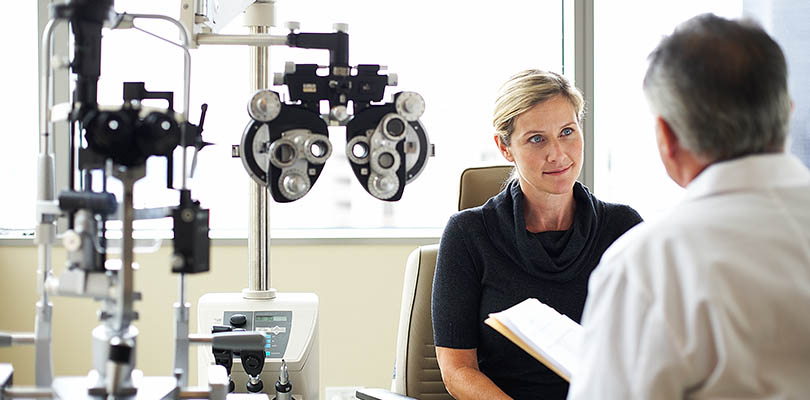Photo Credit: Chalabala / iStockPhoto.com
Managing the Brain Fog the Chronic Illness Causes
Brain fog, the feeling of forgetfulness that many people with chronic illnesses have to live with, affects our minds and our lives in a multitude of ways. Living with brain fog can be mild for some and downright disabling for others.
I have multiple sclerosis (MS), and my brain fog shifts between the two extremes depending on a variety of factors affecting me that given moment or day. It really is as difficult to deal with as the physical symptoms of MS. Life with MS really does balance on how well you set yourself up for success.
I have been struggling with sorting out my brain fog a lot lately. I’m beginning graduate school tomorrow and am really concerned about ensuring I keep on task with all of the work that needs done. I am terrified I will inadvertently forget an assignment or something important that I otherwise would have remembered.
I don’t want to become a failure and I want to make sure I get through the next couple of years without feeling too worn down or wrung out from chasing my tail, trying to remember everything.
Stress...Deal With it!
Stress is a huge factor in my life. If I am stressed, I have a hard time focusing enough on tasks and conversations. I have been really stressed about this new venture and I am taking some time to myself today to make sure I wake up tomorrow as relaxed as possible.
When dealing with stress it’s important to remove yourself, as much as possible, from your stressors. Give yourself some space to think and sort things out for yourself.
If you do not work actively towards reducing your stress, your mind is likely to keep circling the thought pattern of whatever is triggering your emotions. It is hard for anyone to focus on the tasks at hand while stress is taunting them.
If you have MS, the ability to get things done becomes nearly impossible under these same conditions.
Watch Your Zs
Secondly, I have discovered that my sleep pattern is a huge contributing force in the functionality of my brain. I can feel almost normal if I have allotted myself a full night’s sleep on the evening prior.
Erectile dysfunction is a physical condition in which it is difficult to obtain or keep an erection that is firm enough to participate in physical intimacy.
As it is, I have been sleepless most nights lately. My stress has been invading my sleep hours and I have been waking up every hour on the hour for weeks now.
My only respite has been that, for the first time in my adult life, I have enacted a strict bedtime ritual. I have been able to manage at least six hours of sleep a night for the past week and I hope I will be able to gain more hours once school begins and I no longer feel like the sky is falling.
Really though, I am sure most of you out there have found yourselves completely drained and without the capacity for empirical thought. Sure, it happens to people without MS too; but what happens to us is on a completely separate level of brain shut down.
A day or two, or three, without rest will leave us feeling like an Energizer bunny that just had their battery removed. There is no hope for any functionality once our energy has drained.
Diet and Exercise Are Important
The term ‘brain food’ is not a misnomer — your body will respond in kind to what you feed it. For me, this means I need to keep my diet as fresh and non-processed as possible.
Frankly though, I have had to go even further than that. I have come to the gradual realization that alcohol and desserts are not a help either.
Yes, I am a bit sad to let go of these things. I would be lying if I said that coming to this conclusion was easy — it wasn’t. I have decided I will drink and enjoy sweets only when they are special.
It is important to choose to savor the special things in life, and alcohol and desserts have been added to my growing list of things I no longer devour thoughtlessly.
Exercise has become my solid and faithful tool in regulating my mood and, I suspect, sleep patterns.
I have set up a morning routine of waking up and getting my son on the school bus and my husband off to work, followed by a nice walk around the town square of our small city. I have been able to clock in a couple of miles in the morning as I sip a nice hot cup of coffee.
I give myself time and space to enjoy my surroundings while I get my brain and body in alignment.
I said I suspect exercise will positively affect my sleep, only because I am planning on beginning an evening walking routine today to see if it helps me sleep better for a brighter first day of school tomorrow. I am keeping my fingers crossed on this one.
Beyond Our Bodies
I really feel that no amount of preparation can replace a good foundation. Now that we have covered all of the things we can do to set ourselves up for success, let’s look at the tools we can use to get through the day and feel like champions once the day is done.
We are all very fortunate to be living in today’s age. Technology has made enormous strides in the past decade with the emergence of the smart phone. Fortunately, many people have access to countless apps they can carry in their pockets to keep track of and remind themselves of every little thing they need.
I have apps that keep track of my diet, exercise, sleep patterns, grocery lists, medications, doctors’ visits, calendars, every credit card or bill that needs to be paid. All of these things are on hand, at all times.
I love my cell phone — I would be lost without it. We are all able to keep countless tools with us curtailed to our individual needs, which enables us to lead full and productive lives without missing a beat.
If you are not an avid smartphone user, don’t fret. There are still many ways to keep on task using all of the tried and true analog methods. Set notes around your home and in places where you are likely to see them and be reminded.
Look to the people in your lives for outside support and assistance. I will ask my husband, almost daily, to remind me to take my medicine in the evening. Chances are I will remember to take my medicine on my own, but I feel more secure having him involved in my medicine schedule.
Get creative — thinking tactfully about our bodies and our minds will open doors for finding our paths towards thriving in life. We are not helpless and we are not alone.







